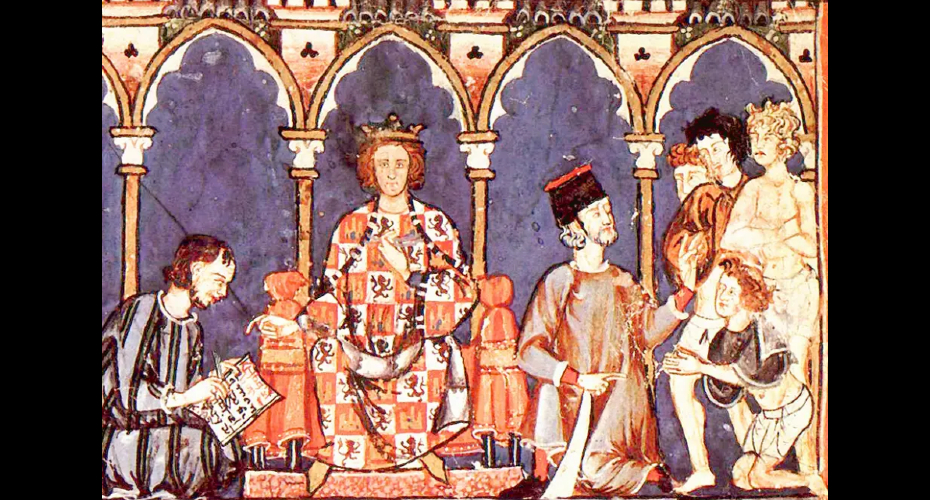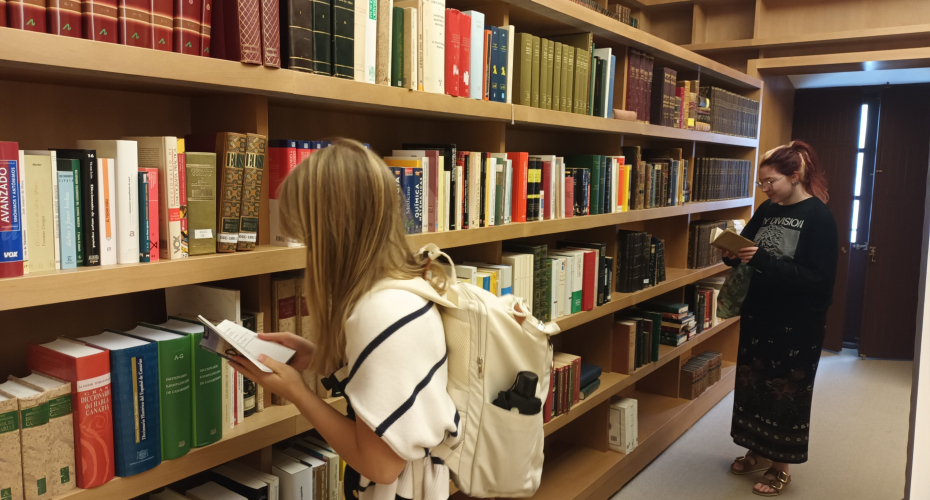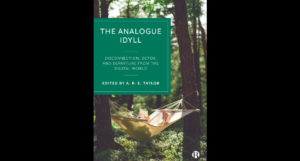University to work with global partners on unique translation project

One of the world’s most historically important texts is to be translated, analysed and made widely available thanks to a global collaboration involving language experts at the University of Exeter.
At 6,000 pages in length, the Spanish-language General Estoria (GE) is the largest universal history ever written in Europe, and attempts to summarise the entire history of humankind.
Now, a partnership led by the University of British Columbia, Okanagan (UBCO), and supported by Exeter’s Department of Languages, Cultures and Visual Studies, will translate the 13th century epic into English and preserve it in digital format.
It has been funded by a grant of more than $2.1 million from Canada’s Social Sciences and Humanities Research Council. It was announced this week by the Honourable Mélanie Joly, Minister of Industry and Minister responsible for Canada Economic Development for Quebec Regions.
“This exciting project is the culmination of a close working relationship with UBCO, which includes three jointly-funded catalyst grants,” says Dr Katie Brown, Co-Director of the project, and Senior Lecturer in Latin American Studies. “As well as making the ‘General e gran estoria’ freely accessible to new audiences, this project will demonstrate the possibilities of large-scale, interdisciplinary, multicultural collaboration across the Humanities.”

The GE was commissioned by Alfonso X of Castile, who ruled Spain from 1252 to 1284. It was an effort to record the entire history of humans, from the origins of the world as narrated in the Bible up to the time the work was commissioned.
It was the first work of its type in a language other than Latin and includes the social and cultural history of the world, as well as its political history. Its authors also spanned multiple religions at a time when prevailing historical texts were usually written by Christians alone. It is housed in the Biblioteca Nacional de España in Madrid.
“While this is one of the world’s most unique and important texts, it is unfortunately not widely known,” says Professor Francisco Peña, Professor in the Faculty of Creative and Critical Studies at UBCO, and project director. “Many relevant texts written in medieval Spain have disappeared. Through our efforts, we hope to change that and preserve this valuable piece of literature forever.
“The text hasn’t been well understood to date because it’s impossible for a single scholar to tackle a project of this size and complexity. So, in the spirit of how the GE was written, we’ve assembled this team from across the globe to tackle it together.”

The project, Confluence of Religious Cultures in Medieval Historiography: A Digital Edition of the General e Grand Estoria (DEGE)’, includes 55 scholars and practitioners from 18 partner organizations across Canada, the United Kingdom, the United States, Spain, Portugal, Egypt, Colombia and Tunisia. Professor Francisco Gago-Jover, of the College of the Holy Cross in Worcester, Massachusetts, is the third co-director along with Prof Peña and Dr Brown.
It will run until 2032 and generate no less than 28 student internships for Exeter, four per year. Each will receive CA$5000 funding and one week of intensive training and cultural immersion in La Rioja.
Dr Brown will be responsible for overseeing training and mentoring across the project, and with the interns, will create the first full English translation of Book 1 of the GE, as well as educational resources for use in Spanish language learning.
Exeter academics, including Professor Michelle Bolduc, Professor Tom Hinton, Dr Loreto Romero and Dr Rebekah Welton, will also be involved once the project moves towards public engagement.
“These Partnership Grants are very rarely offered to projects in the Humanities, so that speaks to its great potential to preserve a unique piece of cultural history and inspire future generations,” adds Dr Brown. “It’s also testament to the fantastic partnership between our universities dating back to when Prof Peña first visited the University of Exeter in 2019.”
To find out more, please visit the project website.



